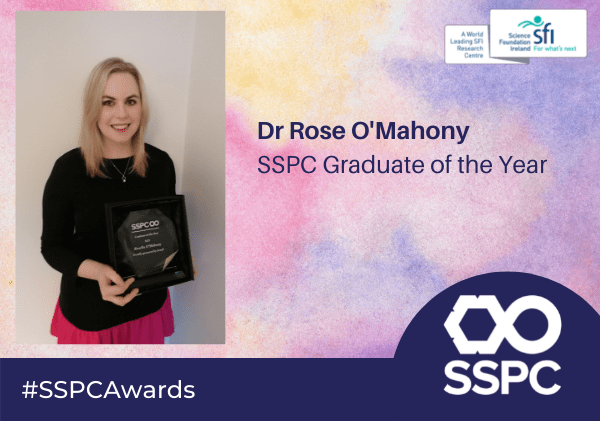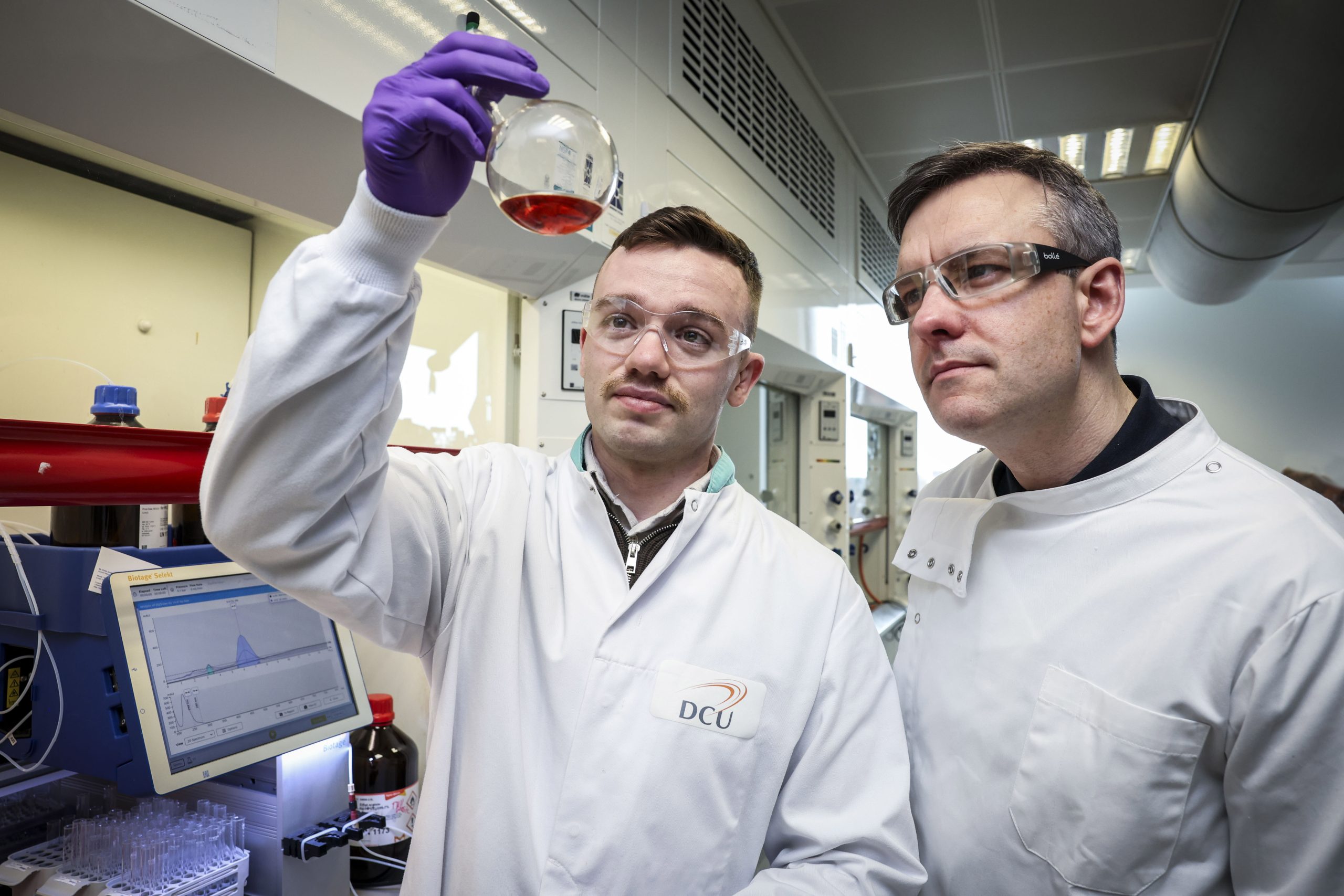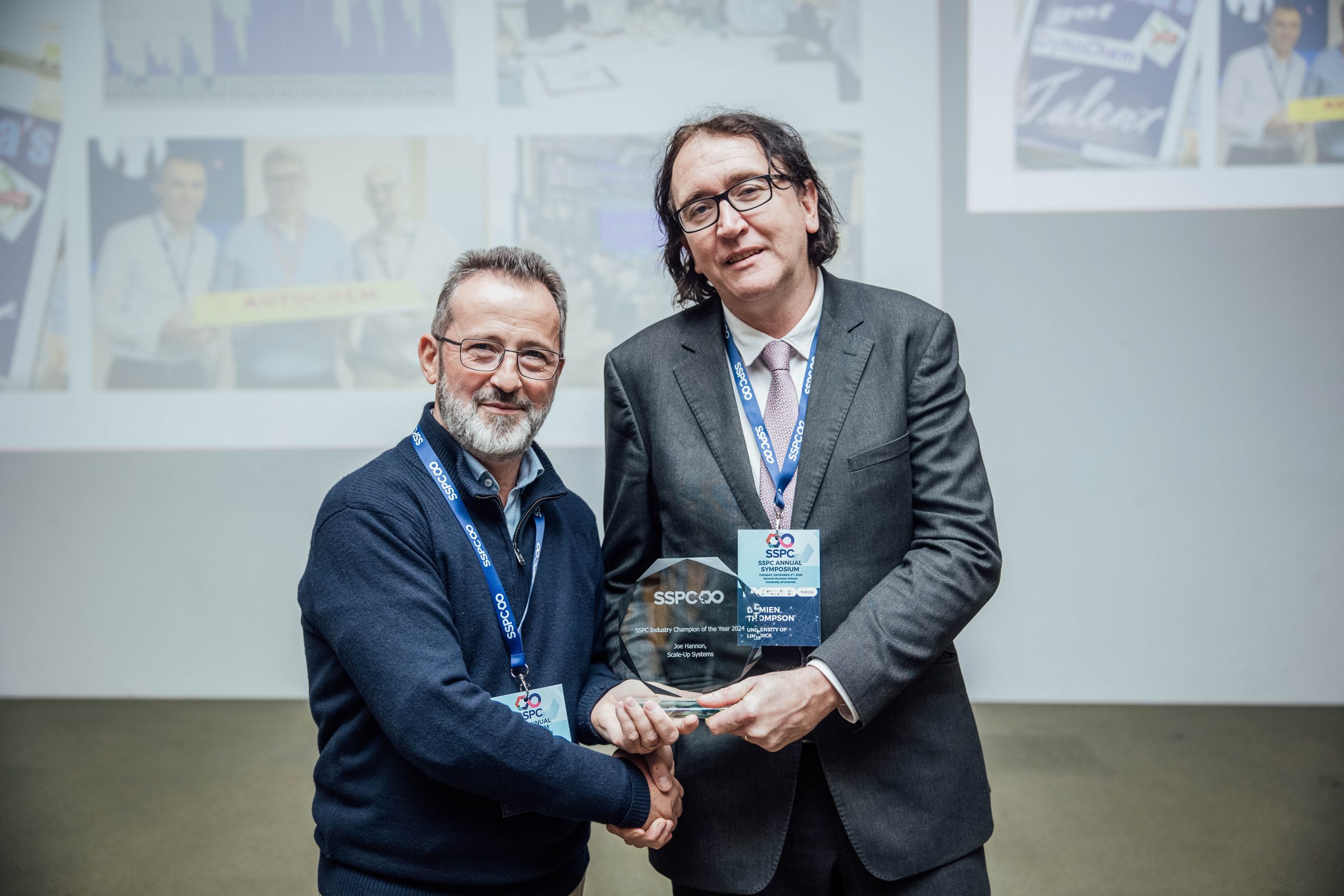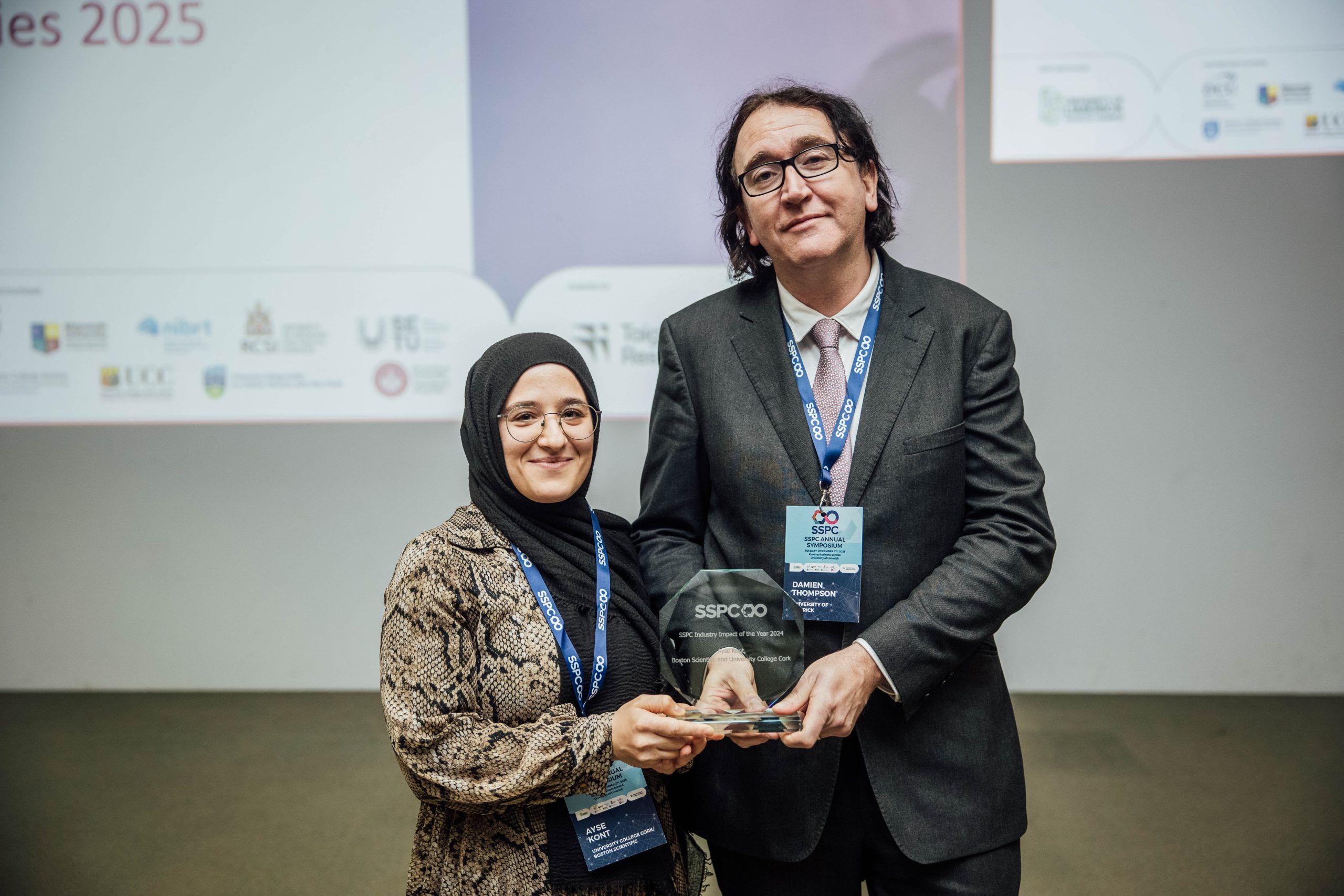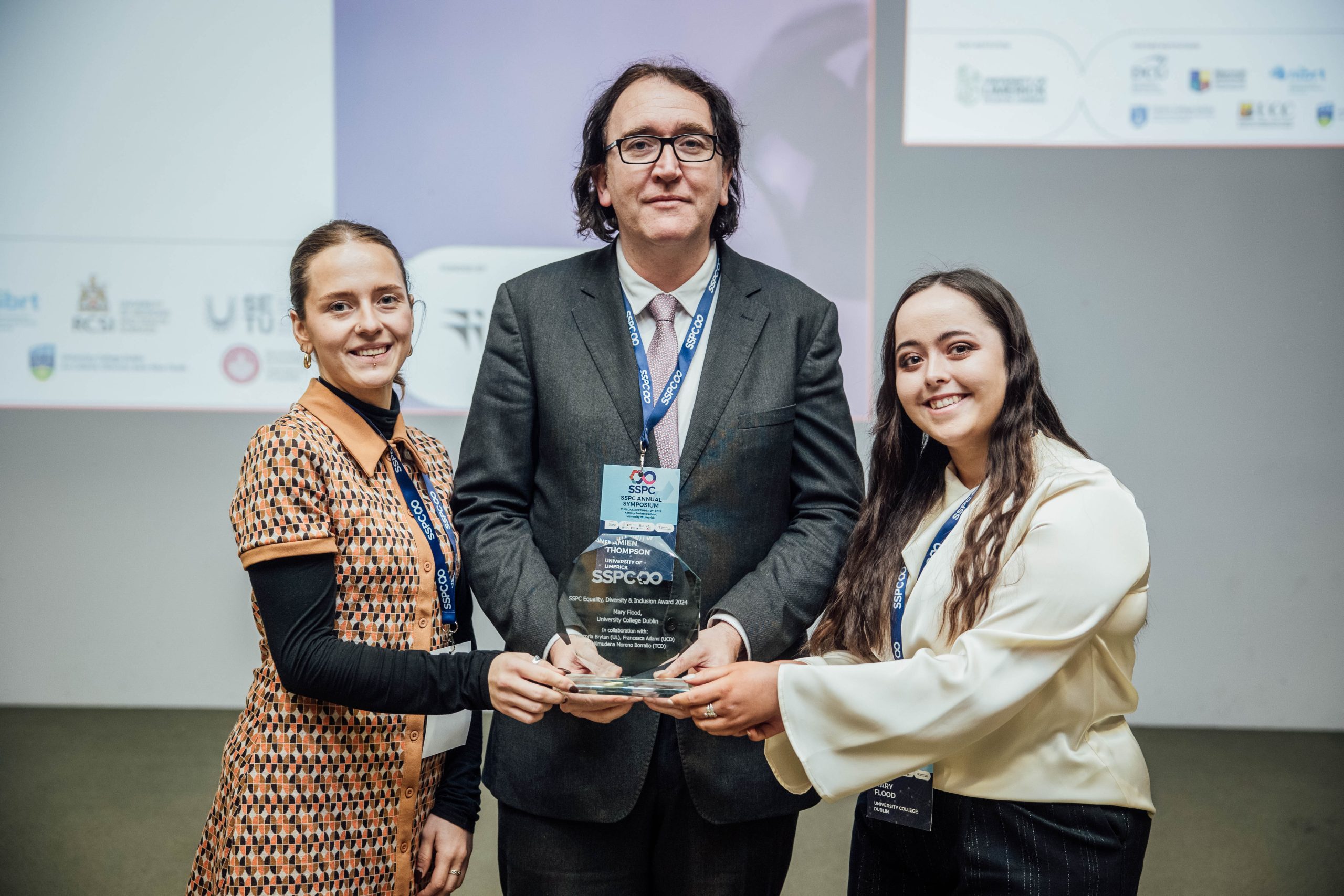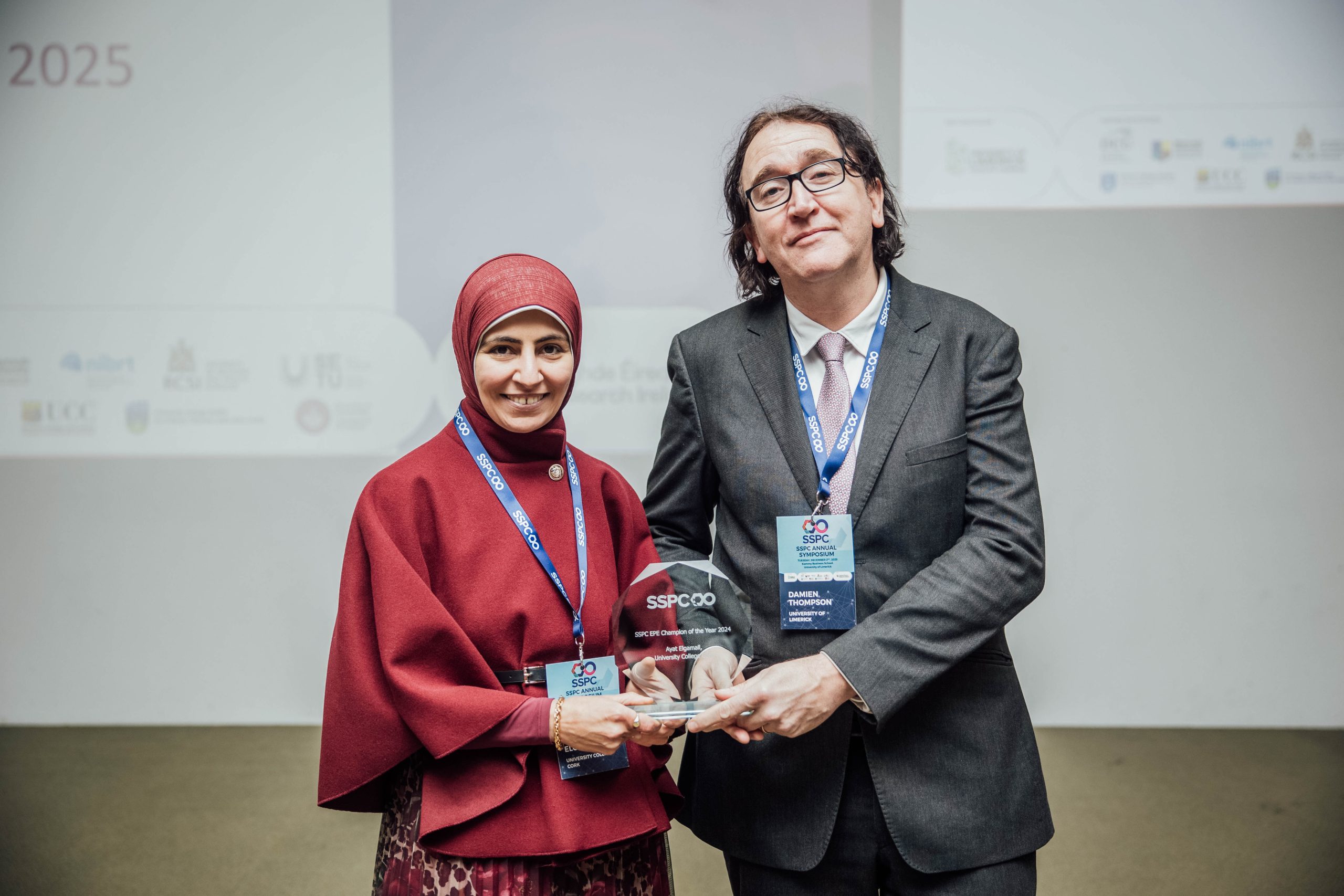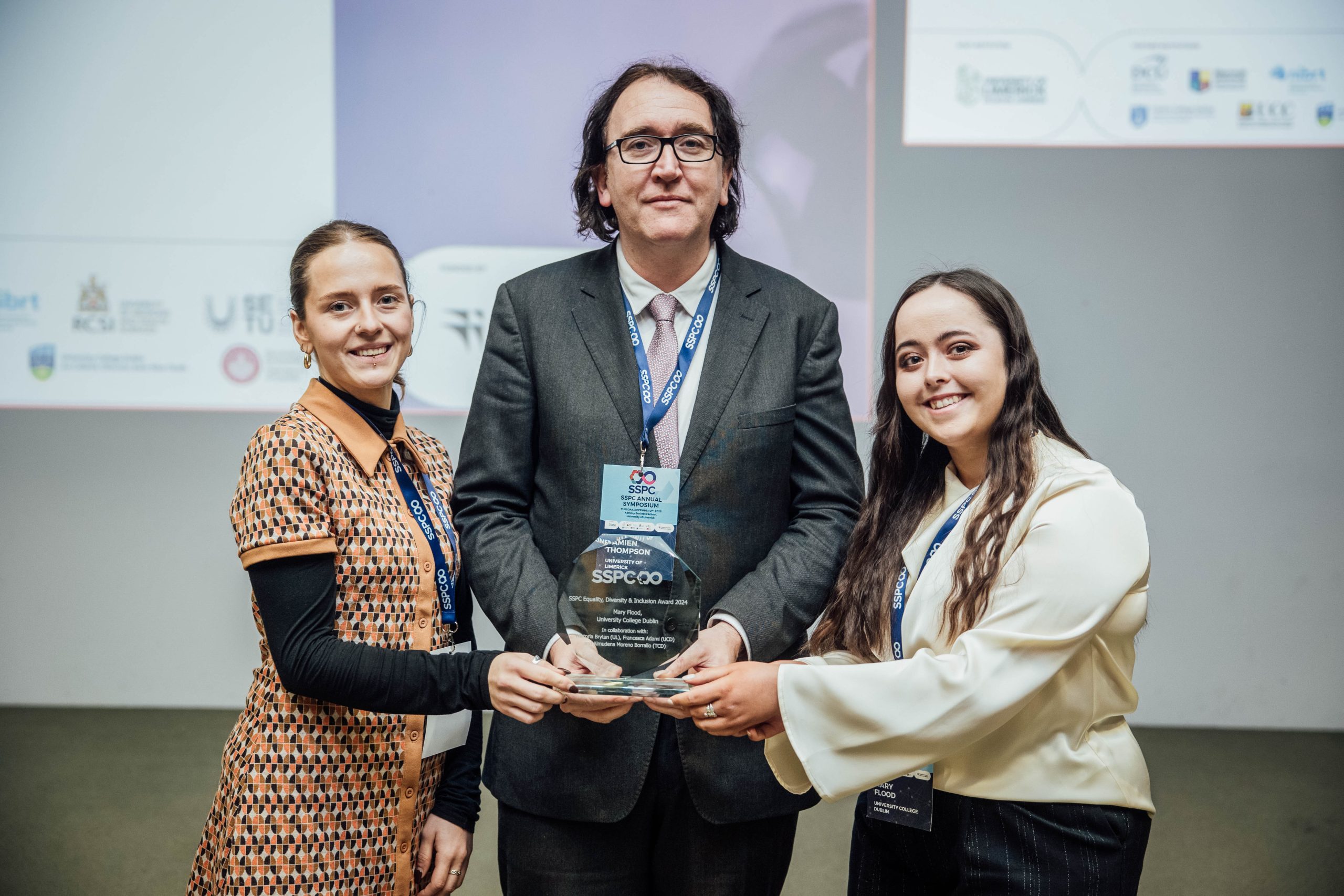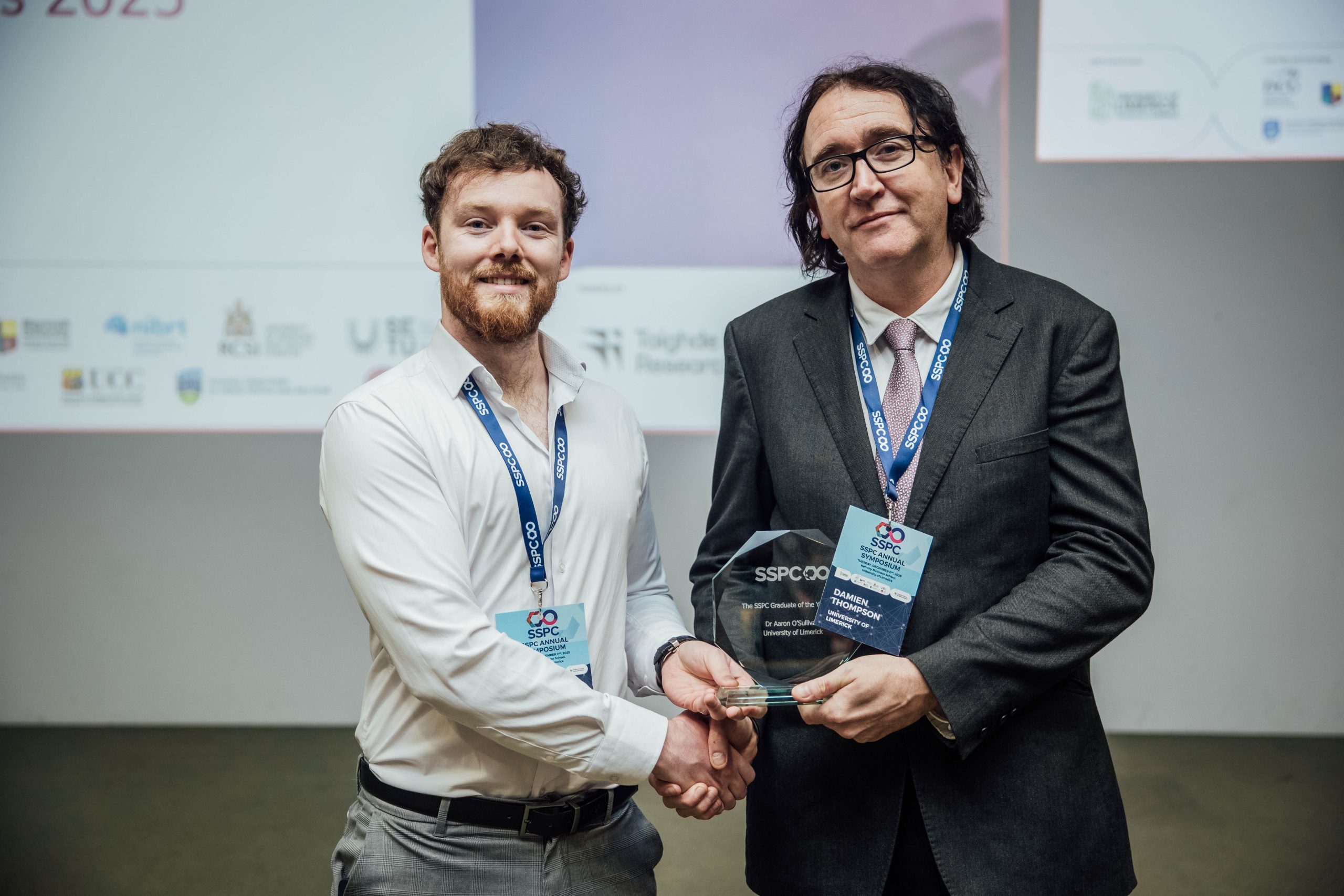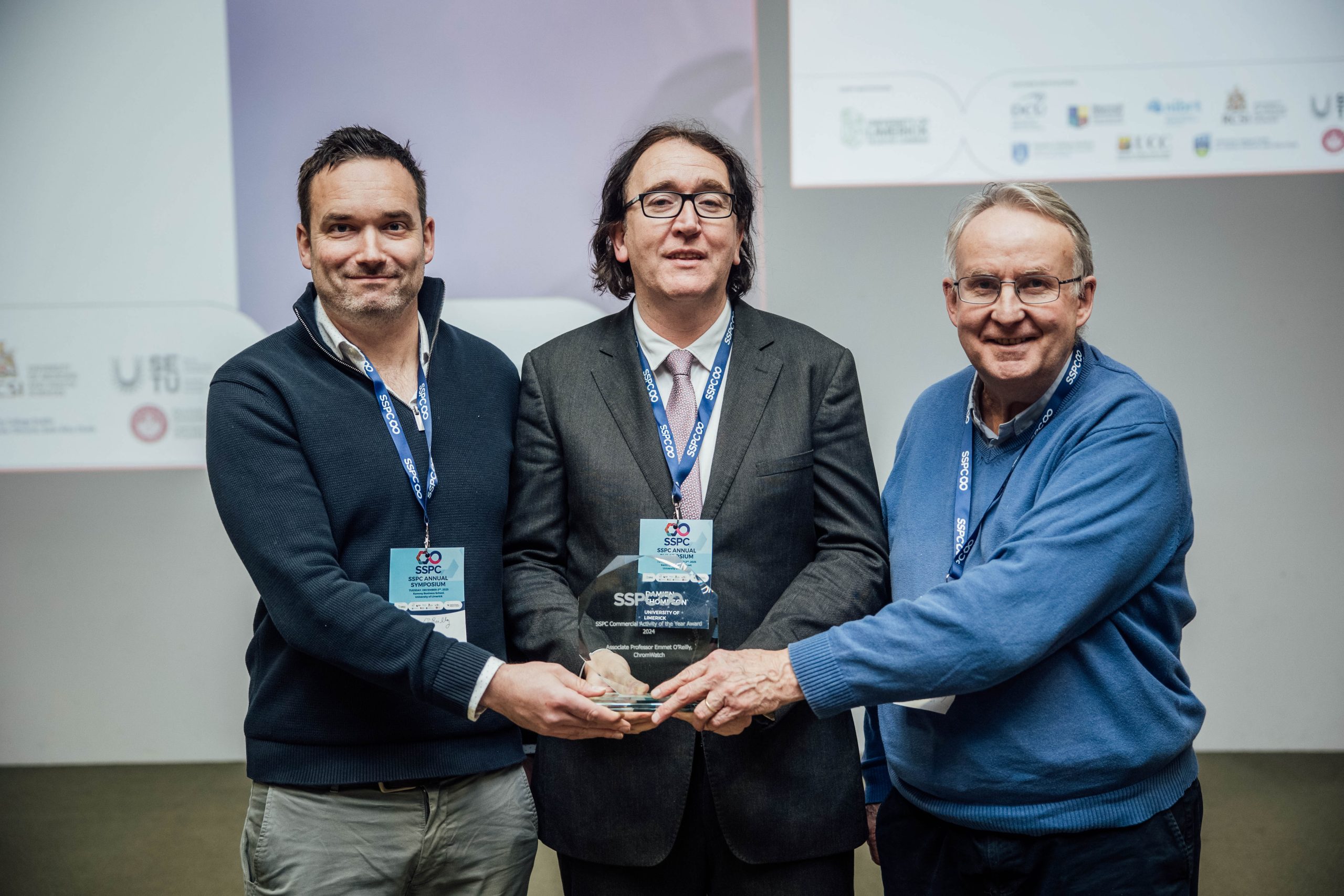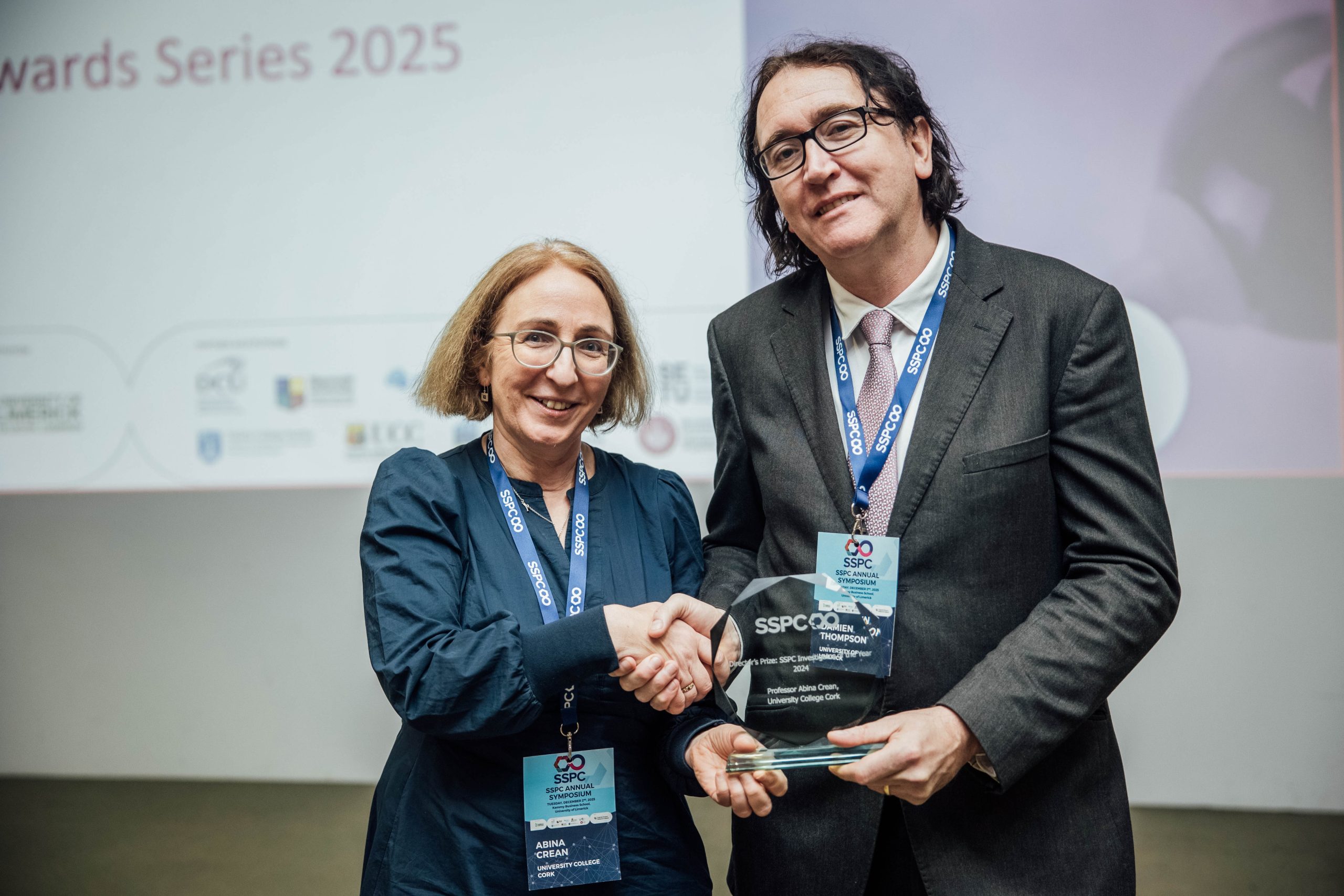Congratulations to Dr Rose O’Mahony on receiving SSPC Graduate of the Year award for exceptional PhD graduates based on their PhD achievements and outputs. Rose’s PhD Title is Enabling the synthesis and reactivity of α-diazocarbonyl compounds using continuous flow chemistry and she was supervised by Prof. Anita Maguire and Dr Stuart Collins at University College Cork.
“Through SSPC so many opportunities and avenues have been opened for me which have underpinned my future career. The support from SSPC in terms of training, outreach, industry engagement and supervision has led me to achieve everything I have in the past 4 years.”
Rose’s background
My PhD was focused on the use of flow chemistry to enable the safe use of hazardous reagents. While diazo compounds have extensive synthetic value, their use at scale has been limited due to challenges associated with these hazardous reagents and their precursors. My PhD research explored how continuous flow processing can be employed to enable safe generation, handling and use of diazo compounds and their precursors, specifically sulfonyl azides, to overcome these challenges, and thereby enable the consideration of the use of diazo chemistry in future synthetic processes. Overall, we developed four distinct protocols for the generation and use of sulfonyl azides for diazo transfer in flow, overcoming many of the challenges associated with their use. My thesis opened with a literature review of recent advances in the available approaches for the generation of diazo compounds with a particular emphasis on telescoping in situ generation with subsequent transformations; use of batch and/or continuous flow processing conditions are discussed. This provided the context for my own research in the thesis.
My initial study showed for the first time that tosyl azide can be efficiently generated and used for diazo transfer, to a range of substrates, under continuous flow conditions, obviating the requirement to prepare, store or handle this hazardous reagent. Successful application to a broad of substrates was demonstrated including β-ketoesters, diethyl malonate, a β-ketoamide and β-oxosulfones. Extensive studies were carried out to find the optimum conditions for in situ sulfonyl azide SSPC Graduate of the Year formation and diazo transfer. A novel quench was designed and successfully implemented, to safely address unreacted or excess tosyl azide. Extension of the continuous flow diazo transfer methodology to the synthesis and use of mesyl azide as the diazo transfer reagent, was next undertaken, with the advantage of facile removal of the water soluble byproducts by phase separation in continuous flow. While the hazards associated with use of mesyl azide are greater than those of tosyl azide, under traditional batch conditions, use of flow technology overcomes these barriers. Use of a designed in-line liquid–liquid separator (through collaboration with the UCD Chemical Engineering team) provided the α-diazo-β-keto ester in acetonitrile of sufficient quality to enable telescoping of the sulfonyl azide formation and the diazo transfer step with a subsequent thermal Wolff rearrangement. An interesting application of FlowNMR is described which enabled investigation of the mechanism of mesyl azide formation. The final study undertaken builds on the diazo transfer in flow methodology, and specifically explores its incorporation in the synthesis of the key API intermediate, methyl 2-hydroxyl-2- chlorophenylacetate, used in the synthesis of the antiplatelet drug, Plavix®. As the original diazo transfer process, in aqueous acetonitrile, was not compatible for the formation of aryl diazo acetates, an alternative flow protocol for generation of tosyl azide was developed in an aqueous-free medium. Telescoping the formation of tosyl azide, diazo transfer and subsequent transition metal catalysed OH insertion of the α-aryl-α-diazoacetate product in flow was achieved; notably the rhodium catalysed OH insertion was cleaner in flow than under batch.
Experience as a PhD within SSPC
My time as a SSPC PhD student was a fantastic opportunity for my personal and professional development in so many ways. It was exciting to be the first PhD student to develop expertise in flow chemistry in UCC. SSPC has always encouraged its researchers to communicate and engage with the wider scientific community and I’ve loved every opportunity. The toughest but most rewarding experience was the “My Project in 5” presentation (TCD, Dec 2018) in which I was placed 1st. SSPC has supported me to present at many international conferences, including FROST 2015 and 2017 (Frontiers in Organic Synthesis and Technology) and conferences in Cambridge. In addition I had the great privilege of helping to organise and presenting at the Flow Chemistry Masterclass (UCC, April 2019). Engagement with industry and collaboration with other universities was central to the success of my PhD.
Collaboration, through the SSPC, with the UCD Chemical Engineering team led to my second paper “Exploiting the Continuous in Generation of Mesyl Azide for Use in a Telescoped Process highlighted in the “Outstanding Organics” section (Flow Chemistry).
During my PhD I have published five research articles in peer reviewed journals, one of which was cited by Taber in “Organic Chemistry Highlights – Flow Methods in Organic Synthesis” – https://www.organicchemistry.org/Highlights/2017/23January.shtm. I was part of the team from the School of Chemistry that delivered the first iteration of Spectroscopy in a Suitcase to Republic of Ireland schools.
SSPC gave me opportunity to partake in science magic shows and science demonstration workshops and various other events. Involvement in the UCC Science Society has enhanced this experience by giving different outreach opportunities including organising and chairing the first annual UCC Cancer conference in 2015. I have represented the School of Chemistry in UCC in several public engagements including open days and science summer camps. Outside of this I have also attended careers nights in secondary schools and panel discussions for undergraduate students on “What it’s like to do a PhD”.
For my SSPC four-month industrial placement (2016) I worked in Lilly, Kinsale, where, as part of the Process Optimisation Group, I supported installation of a Vapourtec R-Series Flow Chemistry system on site and investigated the transfer of a batch process to flow, which included using FlowIR™. I also had the chance to examine batch process issues, including troubleshooting to maintain yield and quality and development and implementation of process improvements for Large Molecule reactors. During my PhD I mentored four final year project students in the area of flow chemistry, each of whom has a publication and three have progressed to PhD’s in this area.
Top outputs from my PhD project: Publications, in particular the collaborative paper “Exploiting the Continuous in Generation of Mesyl Azide for Use in a Telescoped Process” as this publication was chosen for the “Outstanding Organics” section. Eur. J. Org. Chem. 2017, No. 32, 4650; Outstanding Organics (wiley.com)
- B. J. Deadman, R. M. O’Mahony, D. Lynch, D. C. Crowley, S. G. Collins, A. R. Maguire; “Taming tosyl azide: the development of a scalable continuous diazo transfer process”, Org. Biomol. Chem., 2016, 14, 3423-3431, 10.1039/c6ob00246c; “highlighted by Taber in “Organic Chemistry Highlights – Flow Methods in Organic Synthesis” – https://www.organic-chemistry.org/Highlights/2017/23January.shtm” Also featured in “Organic Synthesis: State of the Art 2017-2019”
- R.M. O’Mahony, D. Lynch, H.L.D. Hayes, E. Ní Thuama, P. Donnellan, R.C. Jones, B. Glennon, S.G. Collins, A.R. Maguire, “Exploiting the Continuous in situ Generation of Mesyl Azide for Use in a Telescoped Process”, Eur. J. Org. Chem., 2017, 6533- 6539, 10.1002/ejoc.201700871; (Invited paper, Special issue – Integration of Flow Chemistry in Multistep Synthesis)
- D. Lynch, R.M O’Mahony, D.G. McCarthy, L.M. Bateman, S.G. Collins, A.R Maguire, “Mechanistic Study of In Situ Generation and Use of Methanesulfonyl Azide as a Diazo Transfer Reagent with Real-Time Monitoring by FlowNMR”, Eur. J. Org. Chem., 2019, 3575-3580, 10.1002/ejoc.201900184;
- R.M. O’ Mahony, C.M. Broderick, D. Lynch, S.G. Collins, A.R. Maguire, “Synthesis and use of a cost-effective, aqueous soluble diazo transfer reagent – mcarboxybenzenesulfonyl azide”, Tetrahedron Lett., 2019, 60, 35 – 39 10.1016/j.tetlet.2018.11.051
- R.M. O’ Mahony, K.S. O’ Callaghan, D. Lynch, S.G. Collins, A.R. Maguire, “Generation of Tosyl Azide in Continuous Flow Using an Azide Resin, and Telescoping with Diazo Transfer and Rhodium Acetate-Catalyzed OH Insertion”, Org. Process Res. Dev., 2021, 10.1021/acs.oprd.1c00377 (Manuscript accepted, Invited paper for the collection “Process Safety from Bench to Pilot to Plant”
Outreach activities, particularly delivering the first iteration of Spectroscopy in a Suitcase to Republic of Ireland schools. Seeing final year project students that I’ve mentored become independent researchers in a field which I helped introduce them to.

